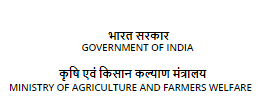RESMI- Composite feed additive for reducing methane emission and improving fiber utilization in ruminants
Background:
Within the agriculture sector, enteric methane emission from ruminants is the largest source of greenhouse gases (GHGs) to the environment. Livestock production systems contribute about 18% to the global anthropogenic GHG emissions mostly due to anaerobic enteric fermentation of feeds. Besides, ruminant animals lose a considerable (2–15% of gross energy) amount of feed energy through methane emission, which otherwise could be converted to metabolizable energy for productive purposes. Ruminant animals contribute 37– 44% of global methane emissions and are major source of methane production in agriculture sector. Therefore, reduction in methanogenesis is of interest of ruminant nutritionists since long for efficient utilization of feed and more recently from the outlook of environmental scientists due to involvement in global warming:
Buffalo plays a central role in the livelihood of people in Asian countries, providing milk, meat, draft power, manure etc. Asia hosts more than 90% of the world’s buffalo population, of which South Asian countries host about 78% of the buffalo. India ranks first in total milk production in the world, with about 50% of milk coming from a total of 108.9 million buffaloes, representing 57% of the world’s buffalo population. At the same time buffaloes are one of the largest contributors of GHGs in livestock sector. The amount of methane produced has a great influence of feed composition and dietary intervention is a decent option to abate methane emission from enteric fermentation. Many feed additives have been used in recent past for reducing methane production from ruminants. Out of these, ionophore antibiotics (monensin, lasalocids) and organic acids (malate, fumerate) were extensively used to reduce methane production and improvement of animal performance. Plant bioactive compounds (saponins, tannins, essential oils) have gained importance in ruminant nutrition for reducing enteric methanogenesis and improvement in health and productivity of animals because of their natural origin. Various combinations of feed additive have been used for reducing methane emission and increasing milk production. But most of the feed additives used for reduction of enteric methane production also inhibited feed digestibility and rumen fermentation, thereby reduced animal performance. Again, effective reduction in methane production under in vivo conditions requires higher doses of additives, which may be toxic to the animals. To address this impasse, it was hypothesized that ideal combinations of rumen stimulants and bioactive compounds at low doses from various sources with balancing mechanism of actions may synergistically decrease methane production without adversely affecting feed digestion or animal production:
The innovated composite feed additive (RESMI) will not only reduce the enteric methane production but also enhance the growth and milk production in ruminants. The product can be used throughout the country and all kind of ruminants (cattle/buffalo/sheep/goat):
Technology Details:
A composite feed additive (RESMI) has been developed consisting of methane inhibitors and alternate hydrogen sinks for reducing methane emission and improvement in fibre utilization by ruminants. Supplementation of the composite feed additive can reduce methane emission by 30%, by reducing number of methanogenic archaea in rumen and promoting growth of alternate hydrogen utilizers like sulphate reducing bacteria. The feed additive stimulates rumen ecosystem by increasing microbial fibrolytic activity and thus increase fibre digestion, reduces rate of ammonia production in rumen with concomitant improvement in feed utilization and performance in ruminant animals resulting in increase in growth rate by 10%, feed efficiency by 15% and milk production by 10.42%.


